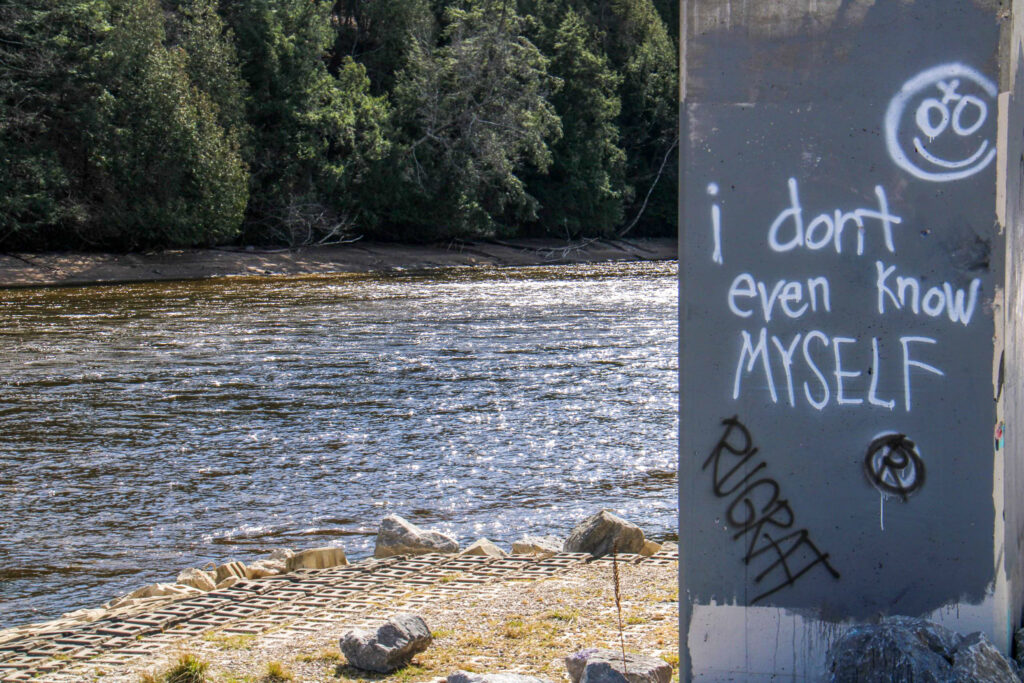
After years of logging and damming, west Michigan naturalists are committed to protecting the Muskegon River for generations to come.
The Muskegon River, spanning 216 miles, has given the city of Big Rapids more than its name and a good view from the balcony at Gypsy Nickel. The Muskegon River watershed includes the ecosystems involved in over 60 streams, or tributaries, that flow into the Muskegon.
Scott Faulkner, director of the Muskegon River Watershed Assembly, collaborates with the Little River Band of Ottawa Indians and members of the Ferris community to protect the local watershed.
“We need to learn to protect the things that protect us,” Faulkner said. “Water is critical to life… Care about the watershed if you care about yourself.”
The Seventh Generation Principle is based on a traditional Iroquois philosophy that focuses on how choices made today will either help or hinder the next seven generations. With help from the LRBOI, the MRWA try to visualize how their work on the river will affect people years down the line.
Early Michigan settlers used the river to transport logs. This damaged the riverbed tremendously, destroying wildlife habitats.
“When we look at a project for the Muskegon River, we try to see how it would affect the generations to come, because I can tell you the loggers did not… We want to do better this time around for your generation,” Faulkner said.
Luckily, nature was able to use its “amazing ability to heal itself” after the logging boom. The river has four major dams, Reedsburg, Rogers, Hardy and Croton, which may pose more permanent problems for local ecosystems. With the water being diverted by dams, fish that once swam from Lake Michigan Higgins Lake are now obstructed.
Jonnie Sam, director of historic preservation for the LRBOI, explained how the Seventh Generation Principle was used in restoring the sturgeon population.
“The sturgeon we planted when we first started probably wouldn’t be available for at least three generations for harvest or for actual other use,” Sam said. “So, it was planned, knowing that continually doing it until it gets to be self-sustaining will provide sturgeon as a resource again to the folks or people within that Seventh Generation thinking.”
While collaborating with local Indigenous communities is important in sustainability efforts, since they were raised with some traditional beliefs, Sam also believes that collaborating with anyone who is willing to work and learn will produce great benefits.
“[Native Americans] start with the big picture and work backwards to you,” Sam said. “You learn early on that the circle that everything is on has all the parts. You have to understand those who went ahead of you left stuff for you now, and those that are coming behind you on the circle deserve to have the same thing.”
Sam recognizes that this long-term thinking, asking how decisions made today will affect one’s grandchildren, is hard for young adults who are still trying to get on their feet in their own lives.
People do not have to be environmental experts in order to help the local watershed. Same explained that an average Ferris student can do their part by analyzing where they have gaps in sustainability in their daily life.
“That’s tough to do in today’s world,” Sam said. “Because, of course, all the pressure of trying to get through from one period to the next. A lot of folks don’t have built up resources, but they could build up the resource by sitting down and thinking through and getting advice from people who are doing what they want to be doing in the future to see how to get there.”
Both Sam and Faulkner have great hope in Generation Z and their ability to leave the Earth better than they found it. Faulkner has observed how today’s students are not afraid to “get their hands dirty” and truly connect with their ecosystem.
“If you’re doing the work well enough, other places will pick it up. You’ll be able to expand the program. And perhaps, as I like to say, your process of Seventh Generation thinking will reverse the process, and maybe we’ll accidentally save the world.”
